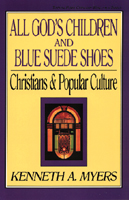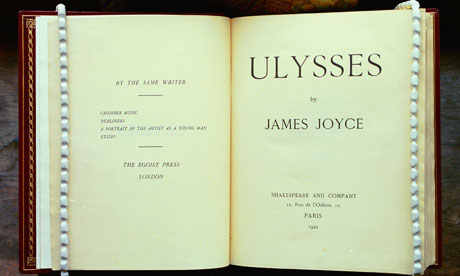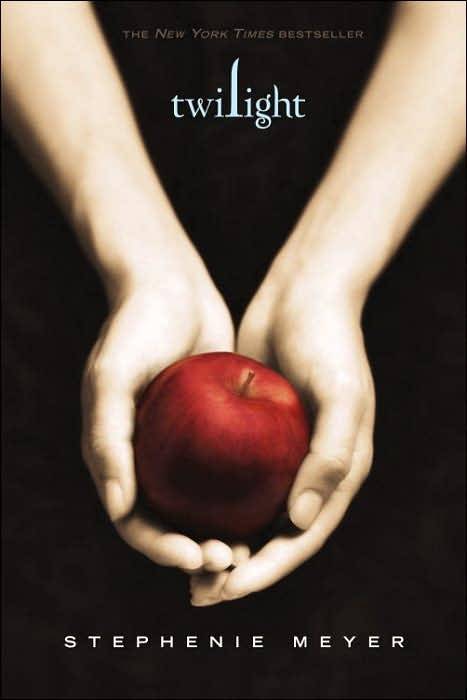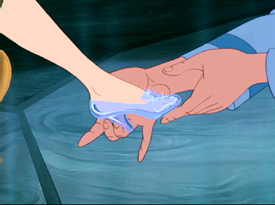My Response to T. David Gordon’s Review of "Popologetics"
My Response to T. David Gordon’s Review of Popologetics
in Ordained Servant Online, February 2013
28th February, 2013
Confession: I really do read reviews of my books. Mostly this is a pleasant experience. Sometimes it is not. Reading T. David Gordon's review of Popologetics falls in the latter category. Prof. Gordon's review can be found here: http://www.opc.org/os.html?article_id=347&cur_iss=Y, and it is entitled "Form and Message: A Response." Though Prof. Gordon says nice things about the book as a whole, the bulk of his review is a defense of Ken Myers. (There seem to be a lot of people with a vested interest in defending Myers' position, which to me indicates that my critique of him is still timely, though All God's Children and Blue Suede Shoes was published in 1989). What made Prof. Gordon's defense of Myers (and his critique of my arguments against Myers'  position) such an unpleasant read for me was that it wasn't clear whether Gordon had actually read important passages of my book. He seems to have skipped much that would have been relevant to his critique of my position. I found myself confused and irritated by what seems to be incomprehension of what I was trying to communicate. I wrestled with whether I should respond and toyed with just letting the whole things slide. I finally decided that I must respond for two reasons.
position) such an unpleasant read for me was that it wasn't clear whether Gordon had actually read important passages of my book. He seems to have skipped much that would have been relevant to his critique of my position. I found myself confused and irritated by what seems to be incomprehension of what I was trying to communicate. I wrestled with whether I should respond and toyed with just letting the whole things slide. I finally decided that I must respond for two reasons.
1. Prof. Gordon accused me of lying and misrepresenting Myers' position. He actually invoked the 9th Commandment. As Prof. Gordon is also Rev. Gordon, an acting minister in my own denomination (PCA), I feel I have to respond to clear my name.
2. Last week, one of the readers of the book and a friend from a social network asked if I'd seen the review and if I was going to respond. I shared with him my frustration and asked his opinion. He said I should indeed respond. If Gordon had got me that wrong, other readers should be given some guidance as to why he was wrong. So Keith, this is for you and other culture-nerds like you (and like me).
I'll be following Gordon's outline, just to be thorough.
To start with, Gordon claims that he "found little in Turnau's critique of Myers that had not appeared already in William Edgar's review in the Westminster Theological Journal..." I am flattered to be mentioned in the same breath as my mentor Bill Edgar. However, I believe that Prof. Gordon overlooks a great deal of material in order to make that claim. Edgar's review in the WTJ is all of 3 pages. In Popologetics, I critiqued Myers' elitism for at least 25 pages just in chapter 7. If you count my critique of Myers in chapter 8 (a chapter which Gordon seems to have entirely ignored), the count goes up to 54 pages in total. It is hard to see how I could say nothing more than what Edgar says in 3. Edgar's prose is compact, but it isn't that compact. I'd have to say that Gordon's reading of my book is perhaps a wee bit selective. This will have interesting and confusing implications later on in his review.
Gordon goes on to list five problems he has with Edgar's and my critique. I'm only going to respond regarding my own work. Bill is more than able to take care of himself.
1. Using versus Experiencing Art
First, he doesn't like my reference to C. S. Lewis' distinction between "using" and "experiencing" art. I do mention that distinction it in passing, but it isn't because I imagine that Myers believes we cannot enjoy or use art. What I objected to was the quasi-religious haze that accompanies high culture in Myers' view, and conversely, the vaguely garbage-like stench he attributes to popular culture as a matter of course. My real problem with Myers' position is his concept of the "culture of transcendence," which I believe borders on idolatry. I think this danger is implicit in Lewis' view, but it is made much more explicit and dangerous in Myers' understanding of popular culture. I wish Gordon had addressed this point.
2. Concerning Excellence and Elitism
Prof. Gordon finds fault for my critiquing Myers as elitist "without giving any compelling reason to find elitism objectionable from a theistic point of view." Gordon is unabashedly pro-elitism and says so. For him, elitism is simply the logical consequence of Philippians 4:8, Paul's injunction that we are to think on whatever is right, pure, admirable, excellent and praiseworthy. If we are to be pro-excellence in culture, than we must be elitist, because (presumably), the elite can deliver excellence. The real enemy of excellence is egalitarianism that renders all things the same, giving all a relativistic "I'm OK! You're OK!" thumbs up.
I sympathize with Gordon's and Myers' desire for excellence in culture. In fact, I say so in Popologetics at the end of chapter 7 (one of the chapters where I criticize Myers; see pp. 128-31). However, there are some real problems in Gordon's equation of a concern for excellence (which is admirable and biblical) and elitism (which is less so).
First, let's discuss Gordon's citation of Philippians 4:8. He says that he wished I would have engaged in an exegetical/theological argument with Myers, since he cites that verse. Myers' exegesis is, essentially, "God says think on objectively excellent things. Popular culture doesn't deal in objective categories, but only in subjective ones. Not what is excellent, but what feels excellent to me. Therefore, suspect and eschew popular culture – it's just too subjective to be truly excellent. It has no notion of propriety – just look at contemporary worship!" (summary of Blue Suede Shoes pp. 98-99).
It's true that in Popologetics I did not do a detailed exposition of that particular verse, and I'm not going to do so now. I would like to note a few things about both Myers' and Gordon's treatment of Philippians 4:8 and elitism.
1. Myers depends upon a pretty extreme generalization, namely, that popular culture has no notion of objective goodness, that it is simply all a matter of subjective taste. Therefore (as I understand his reasoning), we should pursue culture from past eras when they actually believed in objective aesthetical goodness and propriety. It is a typical overgeneralization from Myers. What he overlooks is the establishment over the years of criteria for popular cultural criticism. Yes, you heard that right: aesthetic criticism of popular culture. People assume that there are objectively good television shows, or rock bands, or video games. These are newer art forms, to be sure, and so have lagged in the development of a critical vocabulary behind, say, classical music criticism. But that doesn't change the fact that Myers is simply wrong: people do talk about popular culture in objective terms.
2. Both Gordon and Myers slide rather too easily from "whatever is good, noble, right, pure, etc." into high (that is elite) culture. What is missing is any reflection on whether elite culture is truly more excellent than popular culture. Myers assumes that it is, because popular culture is newer and has imbibed a self-centered, relativistic spirit. But again, these are generalizations. I would dare say that much classical music imbibes a like spirit, just in a more refined form (what is  Beethoven's "Creatures of Prometheus" but a paean to the human creative spirit using Greek pagan forms. Great music, but excellent, noble, pure? More like humanist self-congratulation). What I would have liked from both Myers and Gordon was some recognition of the true, noble, praiseworthy and lovely in popular culture. They are there, if we have eyes to see them. But it seems as though Myers has blinded himself to anything but elite culture.
Beethoven's "Creatures of Prometheus" but a paean to the human creative spirit using Greek pagan forms. Great music, but excellent, noble, pure? More like humanist self-congratulation). What I would have liked from both Myers and Gordon was some recognition of the true, noble, praiseworthy and lovely in popular culture. They are there, if we have eyes to see them. But it seems as though Myers has blinded himself to anything but elite culture.
Sliding from Philippians 4:8 to elite culture is a concern exegetically because this verse has basically functioned as a wax nose for many Christians. I've heard it used often as a way to ensure that Christians only think about nice things, like sunshine and daisies and bunny rabbits and saintly missionaries feeding hungry children. It's been used as a way of filtering out anything unpleasant from Christian consciousness, leaving the ideal Christian with a detached, dreamy, saccharine sensibility that is good only for making "Precious Moments" greeting cards. Myers' and Gordon's treatment of this verse is a little less obviously tendentious. By automatically equating elite culture with "excellent," they both leave a ton of questions unanswered and  unexplored. Such an equation is simply intellectually lazy.
unexplored. Such an equation is simply intellectually lazy.
By the way, an antidote to the "daisies and bunny rabbits" disease/reading of Philippians 4:8 can be found in one of the best treatments I've seen of the verse: Brian Godawa's first chapter in Hollywood Worldviews. It was originally an appendix in his book entitled "Sex, Violence and Profanity in the Bible." He argues that the "good, true, noble, praiseworthy" must involve the whole truth, including the darker, more unpleasant realities of fallen existence. If it's going to be true, noble, excellent and praiseworthy, it's got to be real. And that realness is found in both elite and in popular culture.
3. I have a point to make as well concerning Prof. Gordon's too easy assumption of an alliance between "the excellent" and "the elite," and his charge that I give no reason why elitism is bad from a Christian point of view. It seems to me that Gordon has completely ignored the content of my critique of elitism. What I mean by "elitism" is not a belief in excellence, but in a social elitism that denigrates certain classes of people. The burden of a major portion of chapter 7 of Popologetics is concerned with revealing the historical roots of the high culture/low culture distinction, a distinction in which popular culture always turns out to be the loser. The distinction between high and low culture is not eternal; it did not drop from the heavens before time began, despite the assumption of elitists like Gordon and Myers. It has a history, and a particularly nasty history at that, a history rife with racism and  anti-immigrant xenophobia. The high/low culture distinction was a way of instituting a social and cultural hierarchy in the latter half of the 19th century to make sure that "those people" (immigrants, racial minorities) knew their place. It was a way of confirming that our culture is superior, their culture is inferior. Given that Christians believe that all people are created in God's image and are to be treated with profound respect, I think such a history should raise alarm bells. Social elitism of the kind that was common among Christians in 19th century America is absolutely wrong. I wish Gordon had at least mentioned this history or the fact that I wasn't talking about excellence per se, but rather about the establishment of a socio-cultural hierarchy. It is that social elitism combined with a worshipful attitude towards works of art that I find so potentially dangerous and noxious, and damaging to those who are not of the elite group. So when I talk about elitism, Prof. Gordon, it is not about excellence per se. It is about cultural hierarchies that served as a form of oppression against other human beings. That I think constitutes a "theistic reason not to be elitist." Not excellence; racism and xenophobia.
anti-immigrant xenophobia. The high/low culture distinction was a way of instituting a social and cultural hierarchy in the latter half of the 19th century to make sure that "those people" (immigrants, racial minorities) knew their place. It was a way of confirming that our culture is superior, their culture is inferior. Given that Christians believe that all people are created in God's image and are to be treated with profound respect, I think such a history should raise alarm bells. Social elitism of the kind that was common among Christians in 19th century America is absolutely wrong. I wish Gordon had at least mentioned this history or the fact that I wasn't talking about excellence per se, but rather about the establishment of a socio-cultural hierarchy. It is that social elitism combined with a worshipful attitude towards works of art that I find so potentially dangerous and noxious, and damaging to those who are not of the elite group. So when I talk about elitism, Prof. Gordon, it is not about excellence per se. It is about cultural hierarchies that served as a form of oppression against other human beings. That I think constitutes a "theistic reason not to be elitist." Not excellence; racism and xenophobia.
As I mentioned before, at the end of chapter 7 in Popologetics, I actually comme nd Myers for his concern for aesthetic excellence (the very thing I was supposed to have ignored according to Gordon). The difference between Myers and me is that I find excellence both in classical and popular music, both in "serious" and popular fiction, both in the Globe and in Hollywood. There are gems in popular culture, just as there are examples of crud in high culture (even for Shakespeare: Troilus and Cressida is just a bad play. There. I said it.). Myers (and, I assume, Gordon) seem blind to the possibilities that popular culture may show genius from time to time. As such, I am not arguing for a blindness to excellence. Quite the contrary; I am correcting Myers' blindness to excellence in all forms of culture.
nd Myers for his concern for aesthetic excellence (the very thing I was supposed to have ignored according to Gordon). The difference between Myers and me is that I find excellence both in classical and popular music, both in "serious" and popular fiction, both in the Globe and in Hollywood. There are gems in popular culture, just as there are examples of crud in high culture (even for Shakespeare: Troilus and Cressida is just a bad play. There. I said it.). Myers (and, I assume, Gordon) seem blind to the possibilities that popular culture may show genius from time to time. As such, I am not arguing for a blindness to excellence. Quite the contrary; I am correcting Myers' blindness to excellence in all forms of culture.
3. Formalism Schmormelism
Prof. Gordon says that I ignore Myers' formalism, that somehow I just don't get that he critiques forms (like television, or rock music). This is the bulk of his criticism of me: if I could just get my brain around a concept like formalism, I would not have critiqued and misrepresented Myers. Here I must point out that I feel terribly misrepresented by Gordon. He makes me appear much more careless than in fact I was. Why do I say this? Because I devote the whole of chapter 8 to a critique of formalism! I don't call it "formalism." I call it "media determinism." But it is the same concept: that some forms of culture are just better than others for producing true and excellent art (and conversely, some forms are just hopeless and cannot produce art, like television or video games). I spend the whole of chapter 8 critiquing the formalism of McLuhan, Postman and Myers. How could he not see that? It's as if he stopped reading at chapter 7.
Furthermore (and I'm skipping down in his critique a bit), Gordon's understanding of what formalism is seems pretty muddled. He links formalism to a "creationist" approach (whereas he calls mine "redemptionist" – another problem of his interpretation of me that I'll address below). He seems to define formalism as "Discovering and exploring the various material properties of various art-forms..." Well, if that's all formalism is, then I guess I'm a formalist. I acknowledge in several places in chapter 8 that different media pose different challenges to communication, have different strengths and weaknesses, different blessings and temptations. It is precisely an appreciation of formalism that drove me to devote part of chapter 10, where I lay out my method for interpretation popular culture, to exploring exactly how a given medium projects its imaginative world (see specifically pp. 222-28; it's question #2 out of the 5 questions). It is inherent in my approach to popular culture that the interpreter must understand the form, the unique language of the medium through which the cultural message is delivered. So by Gordon's definition, I'm a formalist.
But I'm not really, or at least I'm not a Myers-brand formalist. Here's why: I do not assign a qualitative hierarchy to different arts based upon their various media or forms. I will not say that literature is essentially better than television. They are different, have different ways of communicating, d o some things better than others. For example, there actually was a film made from James Joyce's novel Ulysses in 1964. I haven't seen it, so I cannot say how successful it was. But anyone who has any familiarity with Joyce's masterwork will see that it is essentially unfilmable because it depends so heavily on interior monologue and stream-of-consciousness. It is definitely a modern novel and nothing else. Ulysses does what novels do well, but what films have a much harder time doing. Likewise, turn Kurosawa's filmic masterpiece Seven Samurai
o some things better than others. For example, there actually was a film made from James Joyce's novel Ulysses in 1964. I haven't seen it, so I cannot say how successful it was. But anyone who has any familiarity with Joyce's masterwork will see that it is essentially unfilmable because it depends so heavily on interior monologue and stream-of-consciousness. It is definitely a modern novel and nothing else. Ulysses does what novels do well, but what films have a much harder time doing. Likewise, turn Kurosawa's filmic masterpiece Seven Samurai  into a novel, and it would be a rather tedious read. It is a film, and depends heavily on the images and action to tell the story. In fact, I'll go out on a limb: one problem with some contemporary
into a novel, and it would be a rather tedious read. It is a film, and depends heavily on the images and action to tell the story. In fact, I'll go out on a limb: one problem with some contemporary popular novels (I'm looking at you, Stephenie Meyer and Dan Brown!) is that they are clearly written as unfilmed films. They fail to exploit the full range of novelistic possibilities because they are written by people who have a film going on in their heads (and perhaps are counting on a film deal in the offing).
popular novels (I'm looking at you, Stephenie Meyer and Dan Brown!) is that they are clearly written as unfilmed films. They fail to exploit the full range of novelistic possibilities because they are written by people who have a film going on in their heads (and perhaps are counting on a film deal in the offing).
In short, I get it: different media do things differently. I said as much in Popologetics. But I am not therefore going to say that television is trash and literature is grand. Each has a different language, and each can be spoken elegantly or badly. I refuse to assign qualitative status in order to dismiss a whole medium. Doing so oversimplifies cultural analysis. To call such oversimplification a "creationist" approach reveals a sub-biblical doctrine of creation. I would hesitate before I call any medium "bad." After all, it is a part of God's creation, a potentiality inherent in the created order. The badness isn't in the thing itself (the medium), but rather in how it is used or abused (on this point, see Popologetics pp. 45-46, 154-55).
Along with Edgar, I insist that the qualitative distinctions be applied not to whole media, but rather we must reserve commendation or condemnation for how various media are used, how they are employed (wisely or foolishly). In fact, Gordon in explaining formalism shows that he doesn't actually understand formalism so well himself. He writes about the slow, deliberate pacing in Robert Redford's film A River Runs through It, and how you just couldn't write like that for television because of commercial breaks. It is clear from footnote 10 of his review that he  considers commercials and such a part of the popular cultural form. They are not. Commercial breaks are not an inherent part of the televised medium, or the radio medium. They are, rather, part of the social institution of commercial television. Commercials are a specific arrangement for funding television that is common in the capitalist West. That is an important distinction to make, for one truly is a created form, and the other has to do with how we have used the form historically. One can deplore the commercialism without deploring the form. Television could have been different, given different historical practices. In fact, even in the U.S., it is different on public television because PBS uses a different funding structure (though even here, because of government budget cuts, it is resorting to a more and more commercial strategy). And there are other ways of delivering televised content which avoid commercials (streaming on the internet, or by purchasing DVDs). So in fact, slower-paced stories can be written for television, just not for commercial broadcast television (not in the same way, at any rate). That's an important distinction that Gordon overlooks, but it is one that I draw attention to at the beginning of chapter 8 (in recounting Raymond Williams' critique of McLuhan; see pp. 139-43, especially pp. 140-42).
considers commercials and such a part of the popular cultural form. They are not. Commercial breaks are not an inherent part of the televised medium, or the radio medium. They are, rather, part of the social institution of commercial television. Commercials are a specific arrangement for funding television that is common in the capitalist West. That is an important distinction to make, for one truly is a created form, and the other has to do with how we have used the form historically. One can deplore the commercialism without deploring the form. Television could have been different, given different historical practices. In fact, even in the U.S., it is different on public television because PBS uses a different funding structure (though even here, because of government budget cuts, it is resorting to a more and more commercial strategy). And there are other ways of delivering televised content which avoid commercials (streaming on the internet, or by purchasing DVDs). So in fact, slower-paced stories can be written for television, just not for commercial broadcast television (not in the same way, at any rate). That's an important distinction that Gordon overlooks, but it is one that I draw attention to at the beginning of chapter 8 (in recounting Raymond Williams' critique of McLuhan; see pp. 139-43, especially pp. 140-42).
In summary, while it might be convenient for Prof. Gordon to say that I am blind or "tone-deaf" to formalism, it is simply not true. I do in fact address formalism. I do not know why he ignored the places in the book where I deal with it. Perhaps he cannot fathom why anyone would not condemn whole media as inappropriate for artistic expression the way Myers does. Gordon believes that people that don't agree with Myers' censorious position are "naive." I strongly disagree. I wish he had been clearer in both his definition and defense of formalism, because what actually appears in his review is rather confusing.
4. Does the Shoe "We're-Above-All-That" Fit Myers' Foot?
The fourth problem Gordon notes is that he dislikes my label for Myers' position: "We're Above All That." He accuses me of misrepresenting Myers by making my critique about Myers, not about popular culture: "Myers’s view is not a view about Myers; it is a view about pop culture, and it misrepresents the view to suggest that it says anything about the author." I assume that Prof. Gordon believes that my argument is ad hominem, and therefore some sort of personal attack against Myers; that I am not arguing about positions but about people. To up the ante a bit, it is here that Rev. Gordon invokes the 9th commandment, assuming that I am "misconstruing words, intentions or actions" of Myers. This is a serious charge and I'd like to respond by making two points:
1. If Gordon assumes that I am making an ad hominem argument or personal attack against Myers, he hasn't read my book very carefully (sorry to sound like a broken record). I do indeed deal with his position. That is how I spent the 54 pages I used for my critique of Myers: to critique his position. I would have had to have been exceedingly creative to spend 54 pages in an ad hominem attack. I deal with his position substantially and in detail. In fact, I feel that Prof. Gordon has misconstrued my words in suggesting otherwise.
2. Gordon says that Myers' position says nothing about Myers. But of course, that is obviously untrue. Myers position does indeed say something about Myers, namely, it says a lot about his attitude towards popular culture. It could hardly be otherwise: position reveals attitude. You simply cannot espouse a position without that position revealing something of your personal attitude towards the subject in question. The label "We're-Above-All-That" is meant to invoke the specter of elitism. And guess what? Because he espouses an elitist position, he can fairly be labeled an elitist. He endorses cultural elitism (see above, point 2). He comes dangerously close to worshipping socially elite culture as the "culture of transcendence." And he promotes the elite "culture of transcendence" as the cultural model for others to follow – we are to mimic his attitude  towards elite and popular culture. If the elitist shoe fits, Myers must have feet of elitism (sort of like feet of clay, but much more posh). So I believe that I have misconstrued nothing; the label fits because Myers does in fact exude that attitude. Myers' book is a lengthy and detailed expression of that elitist attitude. I would therefore appreciate Gordon withdrawing the accusation against me that I have misrepresented and deliberately misconstrued Myers, thus violating the 9th commandment.
towards elite and popular culture. If the elitist shoe fits, Myers must have feet of elitism (sort of like feet of clay, but much more posh). So I believe that I have misconstrued nothing; the label fits because Myers does in fact exude that attitude. Myers' book is a lengthy and detailed expression of that elitist attitude. I would therefore appreciate Gordon withdrawing the accusation against me that I have misrepresented and deliberately misconstrued Myers, thus violating the 9th commandment.
5. Did I "Simply Misrepresent" Myers' Position?
Perhaps the most serious charge that Prof. Gordon makes against me is that I "simply misrepresent Myers" in one quote. Myers' quote is more nuanced than my excerpt of the quote. This is quite true. However, allow me to respond:
1. This is one quote. I reference or quote Myers twenty-four times in the two chapters in which I critique him (I counted). To choose one quote and then suggest that I have therefore "simply misrepresented Myers" is itself a misrepresentation. It overlooks the other places where I get him right.
2. Before Popologetics was published, as a guard against misrepresenting Myers, I emailed him and asked him if he'd be willing to take a look at the chapters I wrote about him (chapters 7 and 8) to ensure that I treated him fairly. He agreed. I sent the chapters. I never heard another word from him. So if Myers feels misrepresented, that's on him (at least partly). I gave him the courtesy that was due him, and he didn't respond.
3. Looking at the quote now, I am not so sure that I really did misquote him. In that sentence, Myers does indeed nuance his statement more than my excerpt of it. But I'm still not convinced that I didn't represent Myers' position better than Myers did. In other words, Myers nuances his words in that sentence more than he does in the book overall. A cursory glance at the ways he refers to popular culture in the book will bear this out (e.g. popular culture is called a "parasite" on p. 70, "garbage" on p. 101, "disposable" on p. 181, and so on throughout). If I'm correct (and I believe I am), then the nuance Myers uses on page 183 of Blue Suede Shoes is a prevarication. It actually misrepresents his overall approach to popular culture, which is not nuanced at all. In fact, after reading his book several times, I defy anyone to find me the place in Blue Suede Shoes where Myers actually says anything salutary popular culture, any place in the book where he attributes some fragment of common grace to popular culture. You won't be able to do it (if you can, please comment below – I'd love to be proven wrong here). Why won't you be able to? Because the whole book is a very detailed, reflective screed against the aesthetic degradation, distraction, developmentally regressive effects of popular culture; how popular culture is destroying the spiritual and aesthetic discernment of God's people. Full stop. Bottom line: my excerpting of his sentence may obscure the nuance that he uses in that particular sentence, but it is in fact more faithful to Myers' position than his own nuanced sentence on p. 183.
Having said all that, I regret misquoting Myers, and if the book ever makes it to a second edition, I'll change it (I've got plenty of other denigrating sentences to choose from). Still, I believe Prof. Gordon is out of line. It simply misrepresents my critique as a whole to say that I "simply misrepresent Myers position." I didn't.
On Gordon's Claim that I'm Trying to "Redeem Culture"
After accusing me of misrepresenting Myers, Gordon does add, thoughtfully, that he doesn't think my misrepresentation of Myers is malicious. It is simply due to the fact that I am "a little tone-deaf to formalism." I've dealt with Gordon's treatment of formalism above and my alleged ignorance of it. If he would reread chapter 8, he would recognize that I am in no way tone-deaf to it. I deal with it. It may not be a position that he agrees with, but it says volumes that he doesn't even address my critique of it.
Perhaps Gordon has a bit of a tone-deafness problem himself. He seems to be able to hear only one tune: that I am somehow of a group that he calls "redeem-the-culture" (along with Bill Edgar, T. M. Moore, and Aaron Belz). I'm not exactly sure what this means, or why he'd include me. I don't necessarily agree with much the Moore wrote in Redeeming Culture (he's too close to Myers' position in my opinion). And I've never heard of Belz. Furthermore, I don't even refer to redeeming culture in my book. Not once. So what could Prof. Gordon mean?
Apparently, people who are "redeem-the-culture" types have a defective doctrine of creation, at least compared to the "creationist paradigm" (which Gordon espouses, and he believes Myers espouses as well). Creationists recognize that God made his creation with certain forms, and these forms have differing strengths and weaknesses (no argument from me here). But the redeem-the-culture folks want everything to be the same. Gordon exclaims, "they wish to “redeem” every art-form equally" (what does this even mean? how can one have "equal redemptions" of cultural forms?). Gordon says we shouldn't be concerned about redeeming art forms. They can't be redeemed. They can just be created using the forms available. And that means recognizing that there are different forms when we create. Which means buying into formalist criticism of Myers' type.
I am gratified that Prof. Gordon is concerned about cultural creation. So am I. In fact, the original manuscript of Popologetics had about 200 additional pages on Christian cultural creation. One publisher wisely suggested that I had two books in one manuscript. They were right. I am presently working on that second book (working title: The Care and Feeding of the Christian Imagination: Creating Authentic Christian Popular Culture). So please be patient, Prof. Gordon. I'm working on it.
Unfortunately, there is also much confusion in Gordon's position about "redeeming culture," confusion of several sorts going in several directions. Let me unpack and answer his claim that I am a redeem-the-culture writer by addressing several points (in no particular order).
1. First of all, he never really states what "redeeming culture" would look like. He doesn't give his  reader enough to recognize it in practice. Consequently, I have no idea what he's really critiquing. The only defining characteristic of the redeem-the-culture types are that they are curiously unable to recognize the limits of various media. So, Don Quixote-like, they insist on tilting at the windmills of God's created structure, trying to redeem art that cannot work given the limits of their created media. As he lays it out, I have a hard time believing that any thinking Christian would espouse this position. Only a cretin would do so. (I hope I am not a cretin).
reader enough to recognize it in practice. Consequently, I have no idea what he's really critiquing. The only defining characteristic of the redeem-the-culture types are that they are curiously unable to recognize the limits of various media. So, Don Quixote-like, they insist on tilting at the windmills of God's created structure, trying to redeem art that cannot work given the limits of their created media. As he lays it out, I have a hard time believing that any thinking Christian would espouse this position. Only a cretin would do so. (I hope I am not a cretin).
2. His alternative, a "creationist paradigm," is likewise somewhat confusing. Its main characteristic is recognizing created strengths and limitations. Well, in that case, then I am of the creationist paradigm. But Gordon, in his defense of Myers, actually smuggles in another, tacit characteristic: we must acknowledge that some forms are inherently better than others for making true art. And that's where I am unable to follow him. There are differences between forms and media, but (as I said above) I will not ascribe an aesthetical or ethical superiority to any of them simply because they have this or that form. There is such a thing as bad classical music (Viennese waltzes are particularly horrible). There is such a thing as transcendent rock music (Neil Young and Radiohead occasionally traverse the transcendent). That is to say: form is one thing, but how the form is used, how the artist recognizes and employs the strengths and weaknesses of the form, that is quite another. And this is something that Gordon doesn't seem to be able to comprehend. From his perspective, if one does not agree with Myers' denigration of popular cultural forms, then one is simply blind to the specific contours, the strengths and weaknesses, of cultural forms in general. Sorry, but that simply isn't true. I can be sensible of those forms without buying into Myers' elitist hierarchy of forms. In fact, creating such a hierarchy of forms (where classical music is always better than rock, for example) arguably stems from a weak and compromised doctrine of creation. Such a biased perspective shuts itself off from the full variety of cultural forms, the whole symphony of creation, by baptizing this or that medium as the only "proper" medium for true art. I don't buy it. It sells God's creation short.
3. Another layer of confusion is added when Gordon insists that I want to "redeem culture." Popologetics is clearly not about redeeming culture. It is about interpreting non-Christian popular culture. It is about treating popular culture seriously because it is the world in which our non-Christian friends and neighbors live and move and have their being. Humans are the ones who need redeeming; not cultural works.
Perhaps he believes that finding something in popular culture that gestures towards redemption counts as "redeeming culture." If that's what he means, guilty as charged. Because part of a careful interpretation of popular cultural works means attending to them and not dismissing them out of hand as trash (as Myers does). It means recognizing the common grace that exists in popular cultural forms, as well as ferreting out the idolatry that lives in popular culture as well. But I would not say that this is redeeming cultural forms or works. Nothing I wrote has anything to do with redeeming culture. It has everything to do with working for the redemption of our friends and neighbors by being able to speak their language, paying attention to the cultural forms that influence them. Calling me a redeem-the-culture type is simply too confusing to communicate anything clearly.
4. Much of this confusion (and selective reading of my book) seems to stem from Prof. Gordon trying to squeeze my work into his preconceived grid (loosely inherited from John Frame, apparently). I've got nothing against tri-perspectivalism, but it is absolutely procrustean to reduce the approach of Popologetics into an "intentional critique" in order to fit into one of Gordon's three complimentary perspectives (content, formal, intentional critiques). As I've already mentioned, my approach includes a formal critique. And there are normative, content-critique elements as well. As for authorial intent, that is a problematic category when dealing with popular culture, because we need to take into account not only what the producer meant, but how the popular cultural work is distributed, marketed, and received. It's complicated. So, despite what Gordon says of me, I'm not a great believer in authorial intent as the final word in interpreting cultural communication. To be fair, I don't really discuss my views on authorial intention in the book. All the more reason why squeezing me into the "intentional critique" box seems problematic at best.
Gordon's Silences
Perhaps more confusing and frustrating than what Gordon said about my critique of Myers is what he didn't say. Reading Gordon's rebuttal of my critique, you'd get the (mistaken) idea that I just shot from the hip at Myers, uncomprehending of his formalism, for the sake of redeeming  culture (whatever that means). In fact, I spent page after page wrestling with the theological implications of Myers' elitism, his censorious formalism, presenting argument after argument about why I believed this is not the path that Christians should tread in trying to engage non-Christian popular culture. None of those arguments made it into Gordon's rebuttal. It is as if they never existed. I'm not going to rehearse them here because they are in the book, chapters 7 and 8. It's pretty frustrating and puzzling to see my critique of Myers "refuted" without any engagement of the arguments I actually used. I feel misrepresented and somewhat abused. It is ironic that someone who is so quick to accuse me of misrepresenting Myers would so thoroughly misrepresent me.
culture (whatever that means). In fact, I spent page after page wrestling with the theological implications of Myers' elitism, his censorious formalism, presenting argument after argument about why I believed this is not the path that Christians should tread in trying to engage non-Christian popular culture. None of those arguments made it into Gordon's rebuttal. It is as if they never existed. I'm not going to rehearse them here because they are in the book, chapters 7 and 8. It's pretty frustrating and puzzling to see my critique of Myers "refuted" without any engagement of the arguments I actually used. I feel misrepresented and somewhat abused. It is ironic that someone who is so quick to accuse me of misrepresenting Myers would so thoroughly misrepresent me.
In Conclusion...
I appreciate Prof. Gordon's kind words about my book as a whole, and am glad he has found my book useful. Nevertheless, I believe his review seriously distorts and limits the position I presented in Popologetics chapters 7 and 8. I do not presume to judge his heart, but it seems as though his preconceived patterns and his loyalty to Myers' elitist approach to popular culture have blinded him to much of what I actually said. I hope that this response will encourage him to reread the chapters I referred to (chapters 7, 8 and 10), and even to retract his accusations against me. They were made in error. We may not agree on Myers' elitist dismissal of popular culture, but that is no reason to accuse a brother in Christ of dishonesty. I hope Prof. Gordon will reconsider his words.
Recent comments
7 years 47 weeks ago
9 years 7 weeks ago
9 years 24 weeks ago
9 years 24 weeks ago
9 years 28 weeks ago
9 years 36 weeks ago
9 years 38 weeks ago
10 years 12 weeks ago
10 years 25 weeks ago
11 years 2 weeks ago